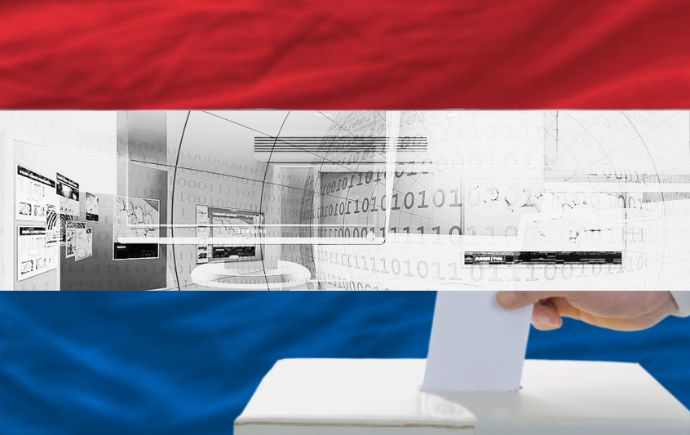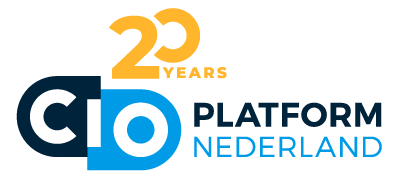Digital technology, (continuing) livelihoods and the 2023 elections
Digital technology, (continuing) livelihoods and the 2023 elections
 Monday 13 November 2023 10:43
Monday 13 November 2023 10:43 On Wednesday November 22nd, the Netherlands will go to the polls. More than two and a half years after the previous elections, and less than two years after the Rutte IV Cabinet took office. And yet the situation is completely different.
The Corona pandemic is over, as are the shelf life of record Prime Minister Rutte and the heyday of traditionally large parties. New parties and opportunities are emerging, and have yet to prove themselves, with polls showing big swings, especially when viewed across different years and elections. Digital technology is virtually absent from the campaigns, although several parties do cover it in their programmes and most know their way around digital channels in search of voters. And yet digital technology is essential to the eventual realisation of many of the points that do take centre stage in the campaign. Look, for instance, at the current political buzz word: security of livelihood (bestaanszekerheid).
The labour market and retaining knowledge
Security of livelihood includes aspects such as rewarding work, sufficient income, access to education and care and a meaningful life. This has an emphatic digital component! If you project livelihood security onto the labour market situation for IT professionals, and the shortage there, an opportunity is there for the taking: train more people for a job working with digital technology! That will give them the chance to get well-paid and meaningful jobs in any industry or sector they find interesting, for example, in healthcare, or education, in the police, in business, you name it. Many people are needed in these sectors, so salaries will be more than enough to make ends meet for the time being. Investing in training technical staff is therefore not by chance the first point that CIO Platform Netherlands has included in its priorities for the elections. It is necessary to help our members get employees and it gives more people a secure livelihood. Win-win.
Migration, another frequent theme in the campaigns, also has an impact on livelihood security when combined with digital technology. Indeed, the aforementioned shortage of IT professionals has a major inhibiting effect on the ability to seize opportunities, to grow, to innovate, etc. Until more people with the right competences become available on the labour market through education and training, they will have to be recruited from abroad, as students, for instance, or skilled immigrant workers. If not, companies will look elsewhere for a place of business, where sufficient qualified personnel are available, and in the process may take some of the IT professionals away from the Netherlands. Squeezing off or cutting off knowledge migration to the Netherlands (which, at least on the basis of basic European regulations on the free movement of people within the Union, is already virtually impossible) therefore has a negative impact on our economic capacity and thus, ultimately, on livelihoods.
Geopolitical playing field
Another aspect of security of livelihood has not yet been so explicitly included in the campaign; the ‘security of being', or rather survival of our Western way of life. The Russian attack on Ukraine, the tension in the Middle East as a result of the incursions from the Gaza Strip into Israel and the reaction to it, the restrictions on trade in technology and necessary raw materials between the US, China and Europe in which Dutch companies are becoming embroiled, they all point to geopolitical changes impacting our freedom. Our values and norms, democratic and economic systems, and thus our operating model, are under pressure. We need to look for alternative technologies and suppliers that make us less vulnerable on the geopolitical terrain. This is the second of our priorities.
The enormous size of a few strategic technology suppliers, their focus on shareholder value, the related unwillingness to constrain the capabilities of their increasingly powerful technology themselves, coupled with the dependence on these parties and their technology that our members are also experiencing, is another side of the observation that the world as we know it is changing dramatically. Against this, in my view, we can only do something on a European scale; in this respect, it is a pity that most political parties pay very little attention to this European perspective.
In the world of digital technology, there is another side to European cooperation. In recent years, many new regulations have been developed in the EU precisely to give European norms and values some renewed attention, even to protect them, in the context of digital technology and geopolitical developments. There is a focus on improving markets and competition, limiting dependencies on other economic blocs and (cyber-)security. Implementing these laws is going to take a lot of time and coordination, both for individual companies and organisations, and for our association. To make this as efficient as possible, we call on politicians to set as few new rules as possible, to align as much as possible with European regulations, to strengthen cooperation between regulators so that they deal with interpreting and applying the rules in a similar way, and to provide clear guidelines for companies and organisations on what they need to do to act in accordance with the laws. For example in the area of applying AI. With all the opportunities this technology presents in addressing climate, healthcare, education, etc. challenges, as well as the ethics and safety challenges that come with it, we will need to know quickly what the frameworks are within which AI can be applied. Only by tackling the implementation of regulations efficiently will we prevent the high level of digitalisation of organisations in the Netherlands from becoming an inhibiting lead. And ensure that scarce knowledge is used optimally. We have also included this approach to market and regulatory implementation in our priorities.
In brief
Giving voting advice is not up to me, but in the above I have tried to outline some of the priorities shared with politicians by CIO Platform Netherlands. The campaigns focus mainly on individuals and very nationally oriented issues. With the formation of a new cabinet after the elections, a new phase will start, in which we will again indicate where the opportunities lie for digital technology, what risks should be taken into account and what preconditions are needed to give Dutch and European companies and organisations the best chance on the world stage and thus make a strong contribution to a free, safe, democratic and prosperous society in a turbulent world. Vote well and consider the impact of digital technology!
Ronald Verbeek
Director
CIO Platform Nederland
